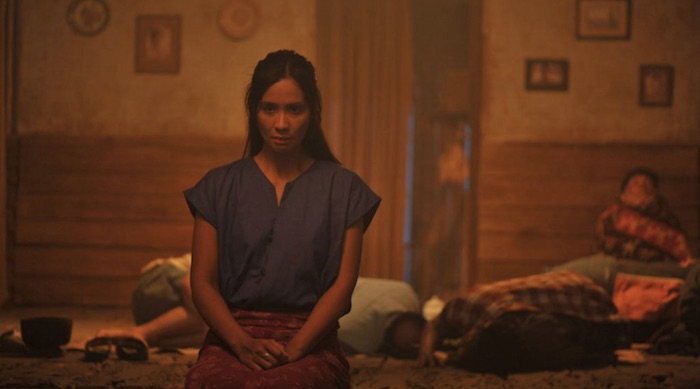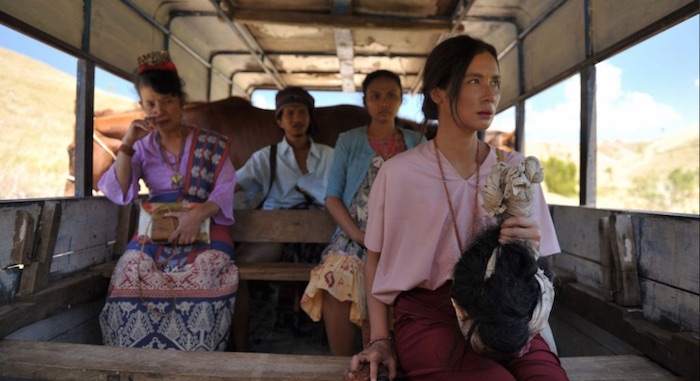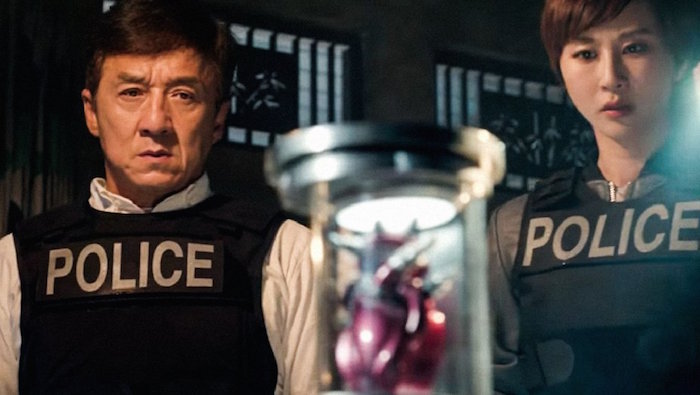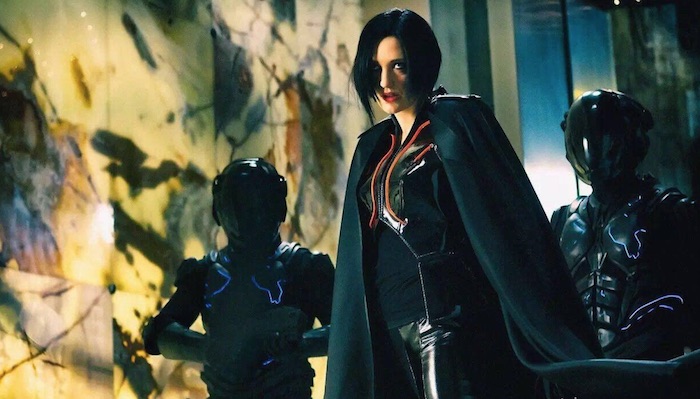TOURISM
 Thursday, February 27, 2020 at 10:55AM
Thursday, February 27, 2020 at 10:55AM Stars: Nina Endô and Sumire
Writer/Director: Daisuke Miyazaki
Reviewed at HYPERLINKS: A Static Vision Film Festival, in Sydney, Australia, on Sunday, February 23rd, 2020.
Rating: ★ ★ ★ ★

Two adorably clueless Japanese millennials stumble across adventure, anxiety and a (slightly) more expanded world vision in Daisuke Miyazaki’s Tourism. Starring the giggly girly duo of Sumire and Nina Endô as the bffs who live in the moment so as to record the moment, this dreamlike, free-form odyssey speaks to the teen and twenty-something audience in a film language that may prove too distractingly self-obsessed and directionless for some. Which would be a shame, because it’s a sweet, likable, spirited insight into embracing friendship and defying alienation in the mobile-device age.
When a contest win provides Nina with two airline tickets to anywhere in the world, she is so ignorant of the world beyond her style-centric young life that she has no notion of where to go. Her friend Su (the actresses use their real names) spins her iPad to re-centre Google Earth and, after a few false starts (Yemen, Honduras), they settle on Singapore as their destination. The journey is all selfies, shopping malls and food courts (including a cool impromptu public dance sequence); Nina and Su are disappointed at the usual tourist sites (at the iconic Merlion Park water statue, they observe, “I thought it would be bigger”) and soon gravitate to the familiar sounds of commerce and capitalism.
In a moment of cataclysmic tumult for any young person, Nina looses her phone and becomes separated from Su. Lost, alone and unable to convey her desperation, Nina unwittingly undertakes her first true immersion in a lifestyle and culture not entirely her own. Led further astray by a well-intentioned good Samaritan, she wanders through diaspora communities; Indian and Muslim enclaves become her Singaporean experience. Found alone and sad, she is befriended by a young man who welcomes her into his home, where his extended family feed and dote on her.

Writer/director Miyazaki paints a generously upbeat picture of Singapore, having one character comparing it to Disneyland. One doubts a pretty, young, lost woman stumbling through the backstreets of any big city would have had quite the relentlessly positive experience that Nina enjoys, but Tourism (there’s irony in that title, to be sure) is a film that is imbued with a goodwill and blind sense of unironic hopefulness that is infectious.
Fuelling the pic’s positivity is undoubtedly the fact that it is a narrative feature drawn from an art installation project depicting modern life in the city, partly funded by Singaporean officialdom; the other component is a montage feature called Specters, which uses clips from the director’s previous works to portray modern civilised living. What does surprise is that Tourism so expertly melds splashes of social realism with a heartfelt sense of character, regardless of (perhaps even, despite) its origins.
Given that film employs mobile-phone framing (vertical and horizontal), ‘selfie-stick’ sequences and 4th-wall shattering, direct-to-camera storytelling – all the love-or-loathe signposts of new-age film storytelling – the result is an engagingly old-fashioned story extolling the virtues of social engagement and experiential living.
 Asian Cinema,
Asian Cinema,  International Film,
International Film,  Mobile Phone
Mobile Phone 



